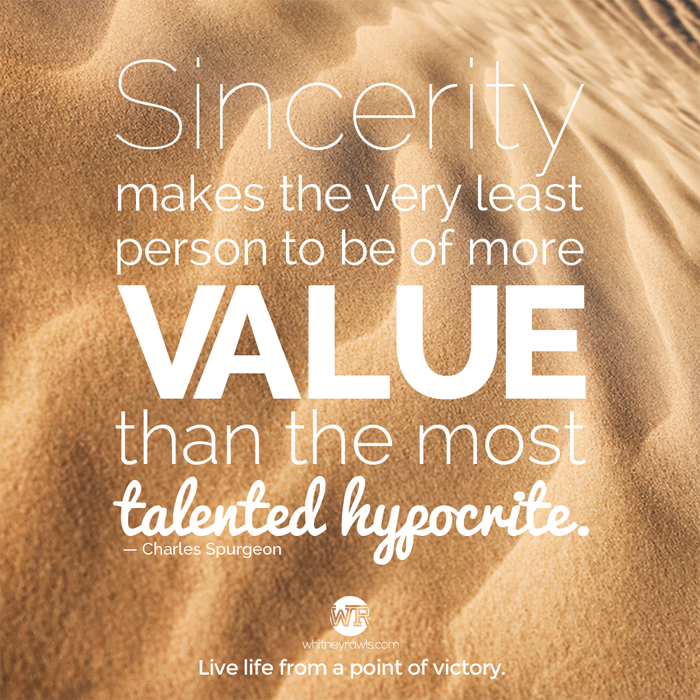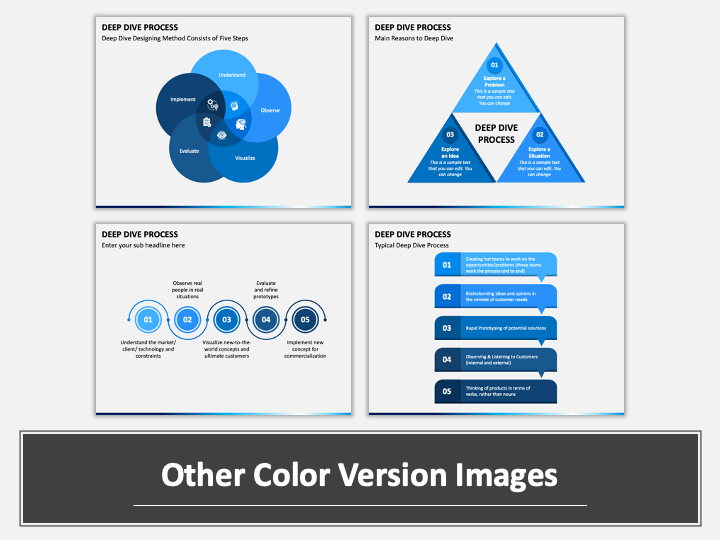The Enduring Power of Sincerity: A Deep Dive

In a world often characterized by superficiality, irony, and carefully curated online personas, the concept of sincerity seems almost quaint. Yet, beneath the layers of cynicism and manufactured authenticity, the human heart still yearns for genuine connection and honest expression. Sincerity, the quality of being free from pretense, deceit, or hypocrisy, remains a powerful and vital force in our personal relationships, professional interactions, and even the broader societal landscape. This article will delve into the multifaceted nature of sincerity, exploring its definition, its importance, its challenges in a modern context, and ultimately, its enduring power.
Defining Sincerity: Beyond the Surface
Sincerity is more than just telling the truth. While truthfulness is a crucial component, sincerity encompasses a deeper alignment between one’s internal feelings, beliefs, and outward actions. It implies a congruence between what you say, what you do, and what you truly believe. A sincere person is not simply reciting facts; they are expressing themselves with genuine emotion and conviction.
Think of it as the difference between reading a prepared statement and delivering a heartfelt speech. The statement might be factually accurate, but it lacks the personal connection and emotional investment that makes the speech truly impactful. Sincerity resides in the willingness to be vulnerable, to express oneself authentically, and to connect with others on a deeper, more meaningful level.
Furthermore, sincerity doesn’t necessarily equate to perfection. A sincere person can still make mistakes, hold flawed beliefs, or act in ways that are ultimately misguided. The key lies in the honesty of their intentions and the genuine effort to align their actions with their values. It’s about striving to be authentic, even in the face of imperfections.
The Importance of Sincerity: Building Trust and Connection
Sincerity is the cornerstone of trust. Without it, relationships crumble, communication breaks down, and societal cohesion erodes. In personal relationships, sincerity fosters intimacy, understanding, and mutual respect. When we know that someone is being genuine with us, we are more likely to open ourselves up to them, share our vulnerabilities, and build a strong, lasting bond.
Imagine a friendship built on pretense and hidden agendas. The constant need to second-guess motives, to decipher hidden meanings, and to protect oneself from potential manipulation creates a toxic environment. Conversely, a sincere friendship, characterized by honesty, empathy, and genuine care, allows for authentic connection and mutual support.
The importance of sincerity extends beyond personal relationships and into the professional realm. In business, sincerity builds trust with customers, fosters collaboration among colleagues, and enhances the reputation of the organization. A company that prioritizes honesty and transparency in its dealings is more likely to attract loyal customers and retain talented employees.
Think of a salesperson who genuinely believes in the product they are selling and conveys that passion to the customer. Their sincerity is far more likely to resonate with the customer than a scripted sales pitch delivered without conviction. Similarly, a leader who demonstrates sincerity in their communication and decision-making is more likely to inspire trust and loyalty among their team members.

On a broader societal level, sincerity is essential for maintaining a healthy and functioning democracy. When citizens trust their elected officials to act in good faith and to represent their interests honestly, they are more likely to engage in the political process and to participate in civic life. Conversely, widespread cynicism and distrust can lead to apathy, disengagement, and ultimately, the erosion of democratic institutions.
The Challenges to Sincerity in a Modern Context
Despite its enduring importance, sincerity faces numerous challenges in the modern world. The rise of social media, the pressure to project a perfect image, and the prevalence of political spin and corporate doublespeak all contribute to a climate of cynicism and distrust.
Social media, in particular, can be a breeding ground for inauthenticity. The curated nature of online profiles often encourages individuals to present an idealized version of themselves, masking their flaws and vulnerabilities behind a carefully constructed facade. This constant pressure to project an image of perfection can make it difficult to be truly sincere, both online and offline.
Furthermore, the increasing polarization of political discourse and the proliferation of fake news have made it more difficult to discern truth from falsehood. The constant barrage of misinformation and propaganda can erode trust in institutions and make it harder to believe that anyone is being truly sincere.

In the corporate world, the pressure to maximize profits and to maintain a positive public image can sometimes lead to unethical behavior and a lack of transparency. Companies may engage in greenwashing, political lobbying, or other deceptive practices in order to protect their bottom line, undermining public trust and fueling cynicism.
The prevalence of irony and sarcasm in contemporary culture can also pose a challenge to sincerity. While irony can be a valuable tool for social commentary and satire, it can also be used as a defense mechanism to avoid genuine emotional expression. Constant irony can create a sense of detachment and make it difficult to connect with others on a deeper level.
Cultivating Sincerity: A Path to Authenticity
Despite the challenges, sincerity remains a vital and attainable quality. Cultivating sincerity requires a conscious effort to align our internal values with our external actions, to be honest with ourselves and with others, and to embrace vulnerability and authenticity.
The first step towards cultivating sincerity is self-reflection. Take the time to examine your own beliefs, values, and motivations. What do you truly believe in? What are your priorities? What are your strengths and weaknesses? Understanding yourself is essential for being able to express yourself authentically.
The second step is to practice honesty in your communication. Be truthful in your words and actions, even when it’s difficult. Avoid exaggeration, manipulation, and deception. Strive to communicate clearly and directly, expressing your thoughts and feelings in a way that is both honest and respectful.
The third step is to embrace vulnerability. Don’t be afraid to show your imperfections and to express your emotions. Vulnerability is not a sign of weakness; it is a sign of strength and authenticity. When you allow yourself to be vulnerable, you create space for genuine connection and intimacy.
The fourth step is to be mindful of your intentions. Before you speak or act, take a moment to consider your motivations. Are you acting out of genuine concern for others, or are you driven by ego, fear, or self-interest? Aligning your intentions with your values is essential for ensuring that your actions are sincere.
Finally, be patient with yourself and with others. Cultivating sincerity is a lifelong journey, not a destination. There will be times when you fall short of your ideals, when you make mistakes, or when you are tempted to compromise your values. The key is to learn from these experiences and to continue striving towards greater authenticity.
The Enduring Power of Sincerity
In a world saturated with superficiality and cynicism, sincerity stands out as a beacon of hope and authenticity. It is the foundation of trust, the cornerstone of meaningful relationships, and the key to building a more just and compassionate society. While the challenges to sincerity are undeniable, its enduring power remains undiminished. By cultivating sincerity in our own lives and by promoting it in our communities, we can create a world where genuine connection, honest expression, and authentic living are valued and celebrated. Sincerity is not just a virtue; it is a necessity for a thriving and meaningful existence.
FAQ: Understanding Sincerity
Q: Is sincerity the same as naivety?
A: No, sincerity is not the same as naivety. Naivety implies a lack of experience or understanding, while sincerity implies a genuine and honest intention. A sincere person can be well-informed and worldly, but they choose to express themselves authentically.
Q: Can someone be too sincere?
A: While sincerity is generally a positive quality, it is possible to be overly blunt or insensitive in the name of honesty. Sincerity should be tempered with empathy and tact. It’s important to consider the impact of your words and actions on others and to communicate in a way that is both honest and respectful.
Q: How can I tell if someone is being sincere?
A: Detecting sincerity can be challenging, but there are some clues to look for. Pay attention to their body language, their tone of voice, and the consistency between their words and actions. Sincere people tend to be more open and expressive, and their behavior is generally congruent with their stated beliefs. However, it’s important to avoid making snap judgments and to give people the benefit of the doubt.
Q: What if I’m naturally introverted and find it difficult to express my emotions?
A: Sincerity doesn’t require being an extrovert. Introverted individuals can be just as sincere as extroverted ones. The key is to find ways to express yourself authentically, even if it’s in a more subtle or reserved manner. You can show sincerity through your actions, your thoughtfulness, and your genuine concern for others.
Q: How can I teach my children the importance of sincerity?
A: The best way to teach children about sincerity is to model it in your own behavior. Be honest with them, even when it’s difficult. Show them empathy and compassion. Encourage them to express their feelings and to stand up for what they believe in. By creating a safe and supportive environment, you can help them develop a strong sense of integrity and authenticity.
Conclusion: Embracing the Sincere Life
In a world that often rewards superficiality and cynicism, choosing sincerity is a radical act. It requires courage, vulnerability, and a commitment to living authentically. But the rewards are immeasurable. Sincerity fosters trust, strengthens relationships, and creates a more meaningful and fulfilling life. By embracing sincerity, we can not only improve our own lives but also contribute to a more just, compassionate, and authentic world. Let us strive to be sincere in our words, our actions, and our intentions, and let us inspire others to do the same. The enduring power of sincerity lies in its ability to connect us to ourselves, to each other, and to the deeper truths of the human experience.

